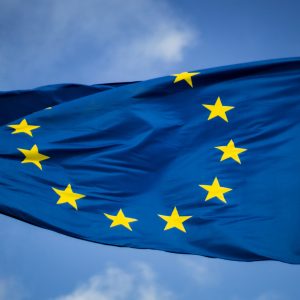On October 23-24, 2024, the Women’s Forum Global Meeting brought over 1,800 attendees to Paris under the theme « Reconciliation: Fostering Unity Through Gender Equality. » As a proud partner of this event, Wavestone contributed to fostering dialogue and moderating impactful discussions. With 190 speakers and 50+ sessions, the Forum showcased how gender-inclusive leadership can bridge divides and address global challenges. Spanning topics from climate to technology innovation, the event delivered a powerful call-to-action for unity through the lens of gender equality.
Wavestone’s 3 Key Takeaways
1. Beyond Inequality—Creating Safe and Trustworthy Workplaces
The 2024 Women’s Forum Barometer exposes stark realities: 74% of workers have witnessed sexist behavior, and 52% of women report facing gender-based disadvantages, including unequal pay (28%), being assigned tasks below their qualifications (22%), and difficulty accessing male-dominated roles (12%). Beyond gender inequality, two-thirds of women feel unable to discuss mental health at work, 6 in 10 do not report sexual harassment for fear of judgment, and 47% worry about their safety when traveling for work.
Addressing these issues was the focus of the session “Addressing the Complexity of Violence in the Workplace” moderated by Jean-Baptiste Blondel, Associate Partner at Wavestone, with contributions from Karen Noblinski, lawyer specializing in cyberstalking and sexual violence, and Emanuela Croce from CARE France. Emanuela underscored the importance of ratifying ILO Convention 190 to eliminate violence and harassment in the workplace, advocating for safe and supportive environments.
Concrete solutions include protecting victims through geographic or schedule mobility, streamlining processes—like Spain’s practice of involving police directly in workplaces—and providing training to help employees detect signals and support victims. Companies must answer three critical questions: How can trust be rebuilt? Who is accountable? And who ensures the system works? A safe workplace isn’t just a goal—it’s a necessity.
Another crucial point highlighted the role of companies in addressing domestic violence, expanding their responsibilities beyond workplace-related issues. Organizations have a key part to play in prevention, support, and adapting work conditions for employees who are victims of domestic abuse. Voluntary initiatives like the OneInThreeWomen network—Europe’s first corporate network committed to addressing domestic violence—aim to highlight its impact on businesses and the key role companies can play in combating such violence.
2. Inclusive Cities Are Safe Cities
“To be safe in public spaces is to be free,” says Catherine Cuillerier, Technical Director at Equans. Yet, 40% of women feel unsafe on public transport, and 1 in 2 women have turned down opportunities due to street harassment. The impact is clear: when women don’t feel safe, their personal and professional growth is hindered.
How can we make cities truly safe and inclusive?
- Raise awareness: With 90% of harassment cases happening in front of witnesses—yet 80% of witnesses failing to intervene—training programs like those launched by RATP Dev for their staff are essential.
- Gather data: As Hiba Fares, CEO of RATP Dev, explained, « Without KPIs, we cannot drive meaningful change. » Tracking incidents is the first step toward ensuring accountability.
- Foster citizen participation: Empowering communities to shape their cities while holding policymakers accountable ensures inclusion and trust.
- Invest in safety measures: Initiatives like RATP’s night bus stops on demand serve all passengers and increase the collective feeling of safety.
Creating safe cities isn’t just about infrastructure—it’s about ensuring freedom and equal opportunities for all.
3. Feminist Diplomacy: A Key to Cooperation and Peace
Despite progress, women remain vastly underrepresented in global diplomacy—only 19% of delegation heads at COP 28 were women, and just 2% of delegations achieved gender parity. Feminist diplomacy seeks to change this, promoting not only women’s inclusion but also fostering cooperation and peace.
The benefits are clear: research shows that when women are involved in peacekeeping, peace is achieved faster, and treaties last 15 years longer. Shelley McKinley, Vice President of Microsoft and Chief Legal Officer of GitHub, emphasized how women strengthen democracies, while Mona Shina, Global Executive Director of Equality Now, highlighted the need for male allyship in advancing these efforts.
Yet, feminist diplomacy—introduced in 2014—remains a work in progress. While 20 countries claim to adopt it, there’s no unified definition or roadmap. As Jocelyne Adriant Mebtoul, President of the International Commission of the High Council for Gender Equality ‘Feminist Diplomacy: International and European Challenges’, aptly called it, feminist diplomacy is a « real weapon of peace, » and building a cohesive framework, starting with the EU, could unlock its full potential.
A Call for Reconciliation
As Jane Goodall so eloquently stated: « We’ve never had more need of reconciliation between countries, communities & families. It’s not only between us humans that we need reconciliation. We must learn to respect nature, find ways to interact with other species, hoping that there will be forgiveness. Both men and women have important roles to play in creating a better world. There are different qualities in men and women, and we need both to create a world where we live in peace & harmony. »
Her words encapsulate the essence of this year’s Women’s Forum: a powerful reminder that building a better world is a collective effort, one that requires unity, respect, and collaboration across all divides.






